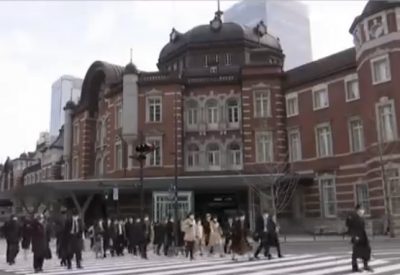Japan elites learn little: State of emergency is spreading coronavirus by default
Sawako Utsumi and Lee Jay Walker
Modern Tokyo Times

The initial state of emergency declared by Prime Minister Shinzo Abe was extremely vague. Thus, it depended greatly on social responsibility and the goodwill of the business community. However, no mechanism was put in place to stop people from spreading coronavirus based on movement.
In other words, some workers in the entertainment industry have moved to areas not covered by the state of emergency. Also, some people have moved to hometowns, parents, and so forth where the coronavirus is limited.
Of course, the reasons are various. For example, people might be moving because of fear. Others for the safety of the family environment and others based on losing their jobs. In other words, the vagueness of the state of emergency equates to spreading the virus by stealth even if unintended.
This is based on no mechanisms to stop people from moving and limited government financial support to keep people living in cities covered. The government did announce a one-off payment and other business initiatives. However, the uncertainty and longevity of the coronavirus crisis mean people worry enormously.
Thus, for low paid workers who moved to expensive cities including Osaka and Tokyo – or temporary workers with limited rights and no income – then staying put is difficult. Therefore, returning to cheaper parts of Japan or living with parents is a natural reality. This is based on unemployment or reduced hours of work.

Yet, in Italy, the lockdown gap enabled tens of thousands of people to leave badly hit areas. This notably applies to the Lombardy region where many people have died from coronavirus. Hence, this time lag in locking down meant tens of thousands of people spread coronavirus to other parts of Italy.
It should be stated that social provisions for the unemployed and the payment of rent are extremely limited in Japan. This notably applies in comparison to wealthy European nations that have a stronger welfare state. Therefore, for many Japanese nationals under economic stress before the coronavirus crisis – and the fear angle – means moving to family members, friends, or cheaper areas is a safety net that isn’t provided by the central government.
The initial state of emergency covered the megacities of Osaka and Tokyo. Equally, the prefectures of Chiba, Fukuoka, Hyogo, Kanagawa, and Saitama were included. However, no central government mechanism was put in place to prevent people from leaving these areas. Nor, equally important, for individuals already struggling to survive, the government didn’t take their plight and options seriously.
Sadly, the political elites in Japan seem to have learned nothing. Thus, it seems likely that the coronavirus will spread to other parts of Japan based on the failed policies of the central government.

PLEASE DONATE TO HELP MODERN TOKYO TIMES
Modern Tokyo News is part of the Modern Tokyo Times group
DONATIONS to SUPPORT MODERN TOKYO TIMES – please pay PayPal and DONATE to sawakoart@gmail.com
http://moderntokyotimes.com Modern Tokyo Times – International News and Japan News
http://sawakoart.com – Sawako Utsumi personal website and Modern Tokyo Times artist
https://moderntokyonews.com Modern Tokyo News – Tokyo News and International News
PLEASE JOIN ON TWITTER
https://twitter.com/MTT_News Modern Tokyo Times
PLEASE JOIN ON FACEBOOK